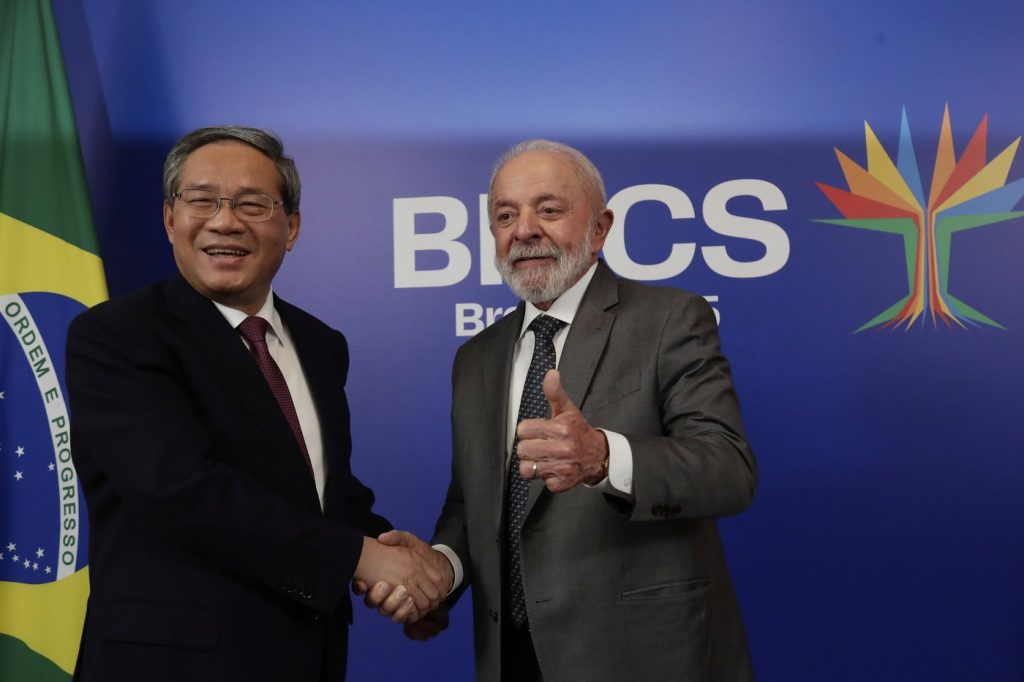Brazil is set to host a summit of the BRICS bloc, which comprises developing economies, on Sunday and Monday. The agenda includes significant topics such as Israel's military operations in Iran, the humanitarian crisis in Gaza, and trade tariffs implemented by U.S. President Donald Trump. Analysts and diplomats have noted that the absence of cohesion in the expanded BRICS, which doubled in size last year, could affect its effectiveness as a counterbalance in global affairs. The moderate agenda appears to be a strategy by member nations to avoid drawing attention from the Trump administration.
President Luiz Inácio Lula da Silva of Brazil plans to prioritize discussions on artificial intelligence and climate change, although key leaders, such as China's President Xi Jinping and Russian President Vladimir Putin, will not be attending in person. This marks the first BRICS summit absence for Xi since assuming leadership in 2012. Meanwhile, Putin will join via videoconference, as he has largely refrained from international travel due to an arrest warrant linked to the ongoing war in Ukraine.
The approach expected at the Rio de Janeiro summit contrasts sharply with last year's event in Kazan, hosted by Russia. At that time, the Kremlin sought to develop alternatives to Western-dominated payment systems following sanctions imposed after Russia's invasion of Ukraine in February 2022. Insiders reveal that certain BRICS members are advocating for stronger language regarding the situations in Gaza and Iran, although Brazil is aiming for a more technical and consensus-based stance.
Oliver Stuenkel, a professor at the Getulio Vargas Foundation think tank, noted that Brazil’s goal is to keep the summit as technical as possible, which may result in a vague final declaration concerning geopolitical tensions like the Ukraine war and Middle Eastern conflicts. This inclination could be further reinforced by the absences of Xi and Putin, who typically advocate for a more pronounced anti-Western position, contrasting with the more neutral perspectives of Brazil and India.
Despite these challenges, a Brazilian government official disclosed that the BRICS countries are anticipated to produce three joint statements and a final declaration, all of which are designed to minimize existing geopolitical tensions. These efforts underscore the need for institutional development to better assimilate the bloc's new members and foster internal cohesion.
As chair of the BRICS, Brazil has prioritized six strategic areas for discussion: global cooperation in healthcare, trade, investment and finance, climate change, governance for artificial intelligence, peace-making and security, and institutional development. The country’s focus on non-controversial issues, such as bolstering trade relations among member nations and enhancing global health, reveals a strategic decision to mitigate possible backlash from Trump’s tariff policies.
Trump has openly threatened to impose 100% tariffs on the BRICS if they attempt to undermine the U.S. dollar. Furthermore, the summit faces challenges from the absence of key leaders, including Iranian President Masoud Pezeshkian and Egypt's Abdel Fattah al-Sisi, who withdrew prior to the meeting. These countries recently joined BRICS in 2024, along with Ethiopia, Indonesia, and the United Arab Emirates, while Saudi Arabia has yet to confirm its participation.
Despite the notable absences, the summit represents a critical opportunity for attendees to address global instability exacerbated by Trump’s tariffs. Bruce Scheidl, a researcher at the University of Sao Paulo’s BRICS study group, emphasized that the meeting could serve as a platform for emerging countries to seek alternatives and diversify their economic partnerships. For President Lula, this summit offers a welcome distraction from domestic challenges, including declining popularity and conflicts with Congress.
Overall, the meeting also serves as a valuable opportunity to advance negotiations on climate commitments ahead of the upcoming COP 30 climate talks, scheduled to occur in Belem, a city in the Amazon region, come November.










